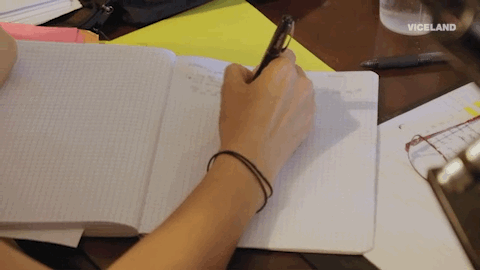
The Humble Notebook
Recruitment is an old game, currently being revolutionised by the likes of new-fandangled technologies, artificial intelligence, the internet and more. I remember my first manager telling me about ‘the old days’ in recruitment, where the team would sit around the fax machine with bated breath, waiting for the screeching to start as a new resumé came through…
We’ve moved on a lot since then, needless to say. But there is one aspect of those good old days which should still be fully utilised at all costs:
The notepad.
And no, I don’t mean those handy travel-sized tablets/laptops; we’re talking about a notebook, made of paper, covered in lines. In today’s techy world, with soft copies and cloud storage abound, it’s often hard to justify having everything printed, stacked and foldered on your desk, but there are definitely benefits to have some things written down – as in physically, by hand, in ink. How ever you work, strong organisation skills are a huge factor to your being successful in this role, and the humble notebook is one way to maximise your chances of, to put it frankly, getting shit done.
Why, you ask?
Ever heard the phrase, ‘busy doing nothing’? Well fear no more, the notebook is here.
Call me old fashioned, but there’s nothing more satisfying than crossing things off of a big, juicy list of to-do’s. It’s one thing to know what you need to do for the day – another entirely to see it written down on paper. If you’re working in recruitment you’re already likely to be target driven, so seeing a physical representation of what you need to get done can be a huge motivator, and physically striking it from said list can be extremely satisfying.
It’s also important to remember that, in this jolly game of huge peaks and massive troughs, things don’t always go to plan; the deal you thought was happening today might have rolled over, or someone didn’t show up for their final. Maybe you didn’t manage to get hold of the follow up you’d had booked with a new client for months. Whatever it may be, you might not end up completing the one task you wanted to today – but if you can see a big old list of seven other items which DID get done, it can help to counteract that feeling of disappointment.
Further to ALL of that – are you under loads of pressure from an old-school manager who enjoys a bit of the old micro-management and wants to know what you’ve achieved at the end of each and every day? Here, Sir/Madam, look at this pretty list of neatly (or not) ticked (or scribbled out) tasks which I completed today. Many thanks.
It’s not all about what’s in the front of your notebook – what are you hiding in the back?
Working in recruitment requires you as an individual to stay motivated. Every. Single. Day. Now, a lot of us will claim that money is the reason we do this job – but what does that mean to you? Being motivated by money isn’t enough – but aiming to get on the job market by the time you turn 28 is. Where do you want to buy your first house, and how many bedrooms do you want? What’s your budget and respective deposit? How long is it going to take you to save that if you hit commission each month? THAT’S motivation – none of this wishy-washy ‘I love money’ talk – and having this written down, by your own hand, makes it REAL. It makes it tangible, achievable and something you can work towards.
Replace ‘house deposit’ at will with dream car; pair of Louboutin shoes; holiday of a lifetime; school you want to send your kids to; whatever your motivation is, seeing it physically written down on paper will bring it to life in your mind. And having this hidden at the back of your notebook (or, screw it – be bold, have it at the front for all to see), there for you to turn to on the down days and during the tough phone calls, might just give you the pick-me-up you need in those moments.
The notebook strikes again.
Your job is important, with many moving parts, intricacies and challenges daily.
Sometimes, you can’t make it into work. Sometimes, you’re off sick, or one of your kids is, or you book a full day of meetings; for whatever reason you can’t make it into the office, it helps if someone’s able to slot in when you’re not there and have a vague idea of how to manage things in your absence.
With a well written list and pages of handwritten notes to work from, it’s easier for one of your team mates to jump in if you’re not there, find out what they need in order to keep the ball rolling and ultimately be productive on your behalf. Not so easy if they’re immediately stumped by a password as they try to log in to your computer…
So, what say you: notebook, or nay?